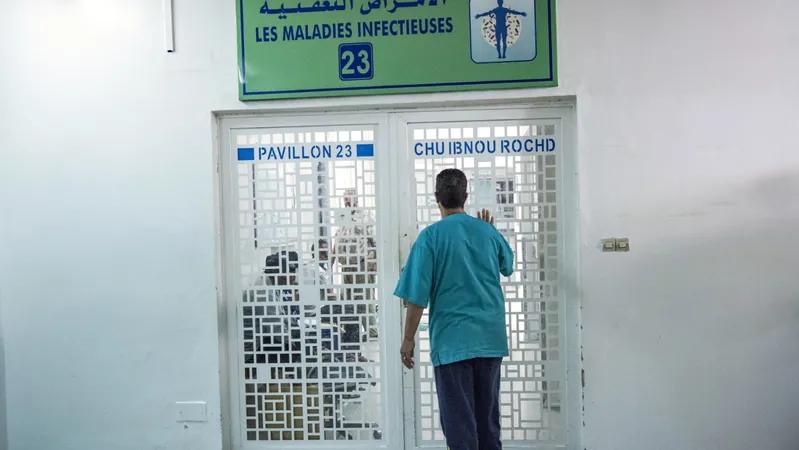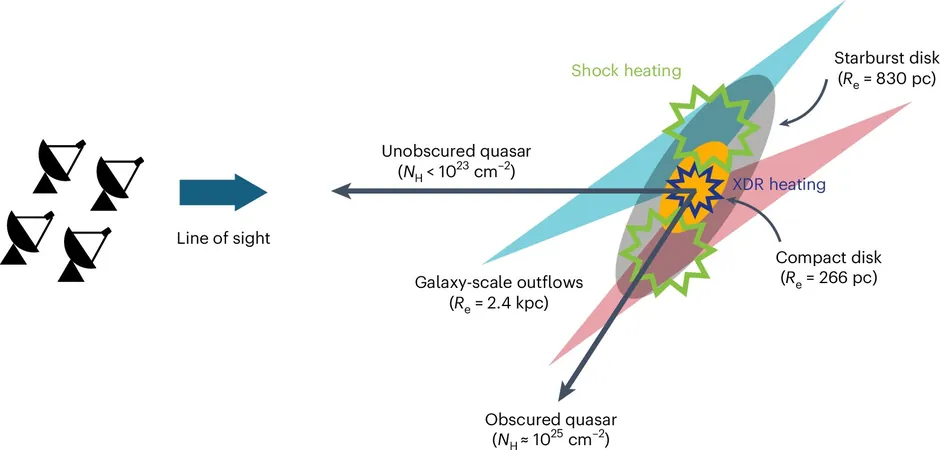
Poland Takes Bold Steps in Cervical Cancer Prevention with New Screening Tests
2025-04-01
Author: Daniel
Poland Takes Bold Steps in Cervical Cancer Prevention with New Screening Tests
In a groundbreaking move, Polish Minister of Health Izabela Leszczyna has officially signed a decree to enhance the country’s national cervical cancer prevention programme. This initiative introduces two advanced tests — the HPV High-Risk (HPV HR) test and Liquid-Based Cytology (LBC) — aimed at significantly improving the early detection of cervical cancer among women aged 25 to 64.
The HPV HR test is designed to detect high-risk strains of the human papillomavirus, particularly types 16 and 18, which are known to be major contributors to cervical cancer. In addition, Liquid-Based Cytology offers a more accurate analysis of cervical health compared to traditional smear tests, marking a notable advancement in the medical field.
These new measures come as part of a broader effort to reduce the incidence of cervical cancer in Poland. The introduction of state-funded HPV testing every five years will allow for timely intervention. If a woman's test is positive, she will then be referred for Liquid-Based Cytology to assess any potential abnormalities, ensuring that preventive care is both proactive and efficient.
Public health experts from the Polish Society of Gynecologists and Obstetricians have long advocated for these modern measures, emphasizing that while early detection can lead to a cure in more than 90% of cases, cervical cancer frequently develops without visible symptoms, making routine screening vital.
The Significance of Early Detection
Cervical cancer remains one of the most prevalent cancers among women. However, with these preventive strategies in place, experts stress the necessity of regular screening. The new programme allows women to access free HPV testing and enhances follow-up diagnostics, reflecting a commitment to safeguarding women's health and reducing cancer mortality rates.
Collaborative Efforts for a Healthier Future
Poland's efforts are also in line with broader European initiatives to combat HPV. A recent high-level debate in the European Parliament titled "Eliminating HPV in Europe: Best Practices, Success Stories, and the Road Ahead" showcased the country’s leadership on this issue. Spearheaded by Polish MEP Adam Jarubas and attended by major health organizations, the event emphasized the need for national HPV elimination strategies and public health advocacy.
Martyna Wyrzykowska from SEXEDPL highlighted the importance of utilizing digital platforms to raise awareness and dispel myths surrounding HPV vaccinations. Sharing success stories from countries with high vaccination rates, such as the United Kingdom and Denmark, the discussions aimed to galvanize cooperation among EU member states.
Despite the gains in public awareness, experts continue to call attention to the gaps in education regarding HPV and its health implications. Igor Grzesiak from the Institute of Patient Rights and Health Education stressed the need for comprehensive, long-term strategies that integrate prevention, early diagnosis, and effective treatment alongside transparent monitoring of vaccination rates.
With these significant advancements, Poland is not just fighting cervical cancer; it is paving the way for a future where women’s health is prioritized and protected. The national health decree is set to take effect within two weeks, illustrating Poland's urgent commitment to progressive healthcare solutions. Keep an eye on how this initiative transforms the landscape of women’s health and inspires other nations to follow suit!





 Brasil (PT)
Brasil (PT)
 Canada (EN)
Canada (EN)
 Chile (ES)
Chile (ES)
 Česko (CS)
Česko (CS)
 대한민국 (KO)
대한민국 (KO)
 España (ES)
España (ES)
 France (FR)
France (FR)
 Hong Kong (EN)
Hong Kong (EN)
 Italia (IT)
Italia (IT)
 日本 (JA)
日本 (JA)
 Magyarország (HU)
Magyarország (HU)
 Norge (NO)
Norge (NO)
 Polska (PL)
Polska (PL)
 Schweiz (DE)
Schweiz (DE)
 Singapore (EN)
Singapore (EN)
 Sverige (SV)
Sverige (SV)
 Suomi (FI)
Suomi (FI)
 Türkiye (TR)
Türkiye (TR)
 الإمارات العربية المتحدة (AR)
الإمارات العربية المتحدة (AR)